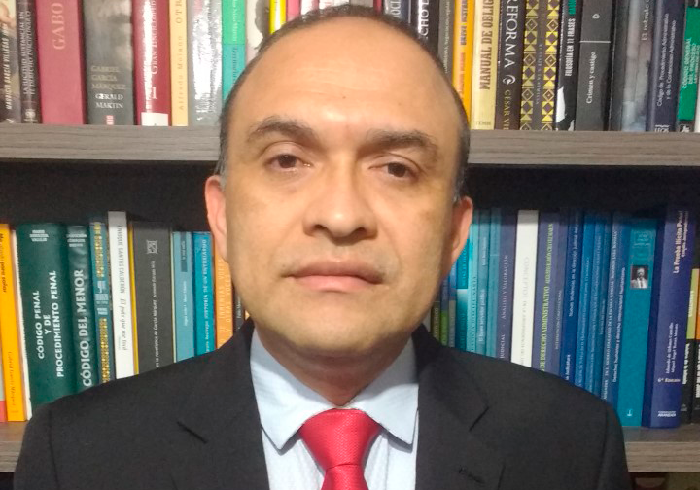
The student describes how disciplinary law is in crisis after the State Council cancelled the sanctions imposed on the mayors of Bogotá and Medellín and Senator Piedad Córdoba, and, above all, with the issuance of the sentence Petro Urrego vs. Colombia on behalf of the Inter-American Court of Human Rights (IACHR).
24 september 2020
Title: Origin, alleged basis and well-founded criticism of the disciplinary sanction of inability to perform public functions in Colombia.
Author: Saúl Martínez Salas
The IACHR determined that the Colombian State must adapt, within a reasonable time, its domestic legal system to the parameters of Article 23 of the Inter-American Convention on Human Rights, that is, that the political rights of those popularly elected cannot be limited by means of administrative acts, as is currently done through the imposition of the disciplinary sanctions of dismissal, suspension and inability to perform public functions.
The MT investigates: (i) the origins of the disciplinary sanction of inability to perform public functions in the Colombian constitutional history; (ii) analyses the alleged constitutional basis that have been outlined for keeping such inability; and (iii) questions the fact that the relation of paragraph 1 of Article 278 of the Political Constitution to such disciplinary sanction has been ignored.
It indicates that the1886 Constitution gave the legislator ample power to determine: a) ‘the responsibility to which civil servants are subject’ (Article 51) and b) the ‘way to make it effective’ (Article 62), regulations that empowered him to set up disciplinary sanctions, including the power to establish the inability to perform civil functions, as it did in Decree-Law 2400 of 1968, Law 25 of 1974 and Law 13 of 1984.
However, he notes, the Constituent Assembly, in paragraph 1 of Article 278 of the 1991 Political Constitution, determined that the Attorney General of the Nation (highest disciplinary authority in Colombia) will directly exercise (non-delegable power) the following functions: 1. To remove from office (highest sanction to be imposed), after a hearing and by means of a reasoned decision (procedure to be followed), any civil servant who commits any of the following offences [...]. He, therefore, concludes that the disciplinary sanction of inability to hold the civil office has no constitutional basis. He explains that, despite this, the Constitutional Court supported the imposition of such inability under Law 200 of 1995, the first Single Disciplinary Code. And that it did so despite the fact that it could be imposed permanently, based on an alleged configuration freedom of the legislator to establish sanctions in disciplinary matters.
He indicates that the second Single Disciplinary Code, Law 734 of 2002, was proposed, among other reasons, to remove the sanction of permanent inability. But, although the legislator determined that the inability would be from ten to twenty years, he also pointed out that it would be permanent if the disciplinary offence affected the economic heritage of the state, regulation that the Constitutional Court declared adjusted to Article 122 of the Political Constitution, although he established a condition.
He describes that the condition was that ‘such inability applies only when the disciplinary offence consists of the commission of a crime against the State property, according to the last paragraph of Article 122 of the Political Constitution’.
However, he explains that, while a behaviour can generate a crime and a disciplinary offence, a disciplinary offence can never be a crime, and that Article 122 establishes inabilities for crimes, not for disciplinary offences. And he adds: ‘is such the notoriety of the error that Law 1952 of 2019, the new General Disciplinary Code, removed such permanent inability’.
He concludes by expressing that although it is true that ‘the law will determine the responsibility of civil servants and the way to make it effective’ (Article 124), this authority of the legislator has a specific legal barrier: Article 278.1 of the Political Constitution, which determines that the highest disciplinary sanction that can be imposed by the attorney, the highest disciplinary authority, is dissociation, but without disqualification from exercising public functions. An innovative legal thesis.













